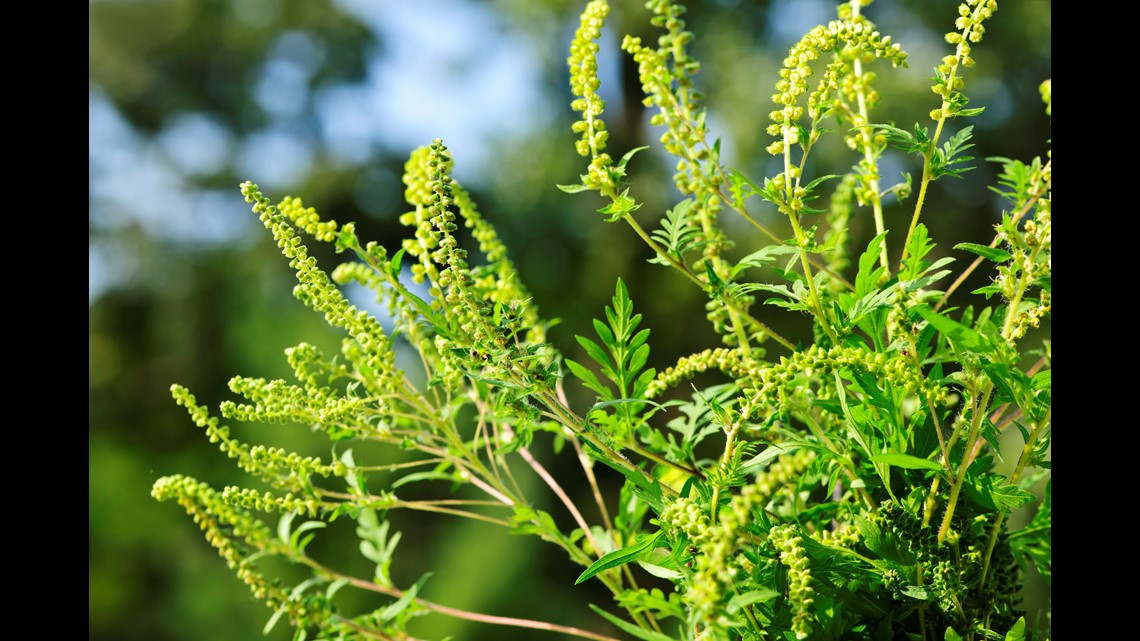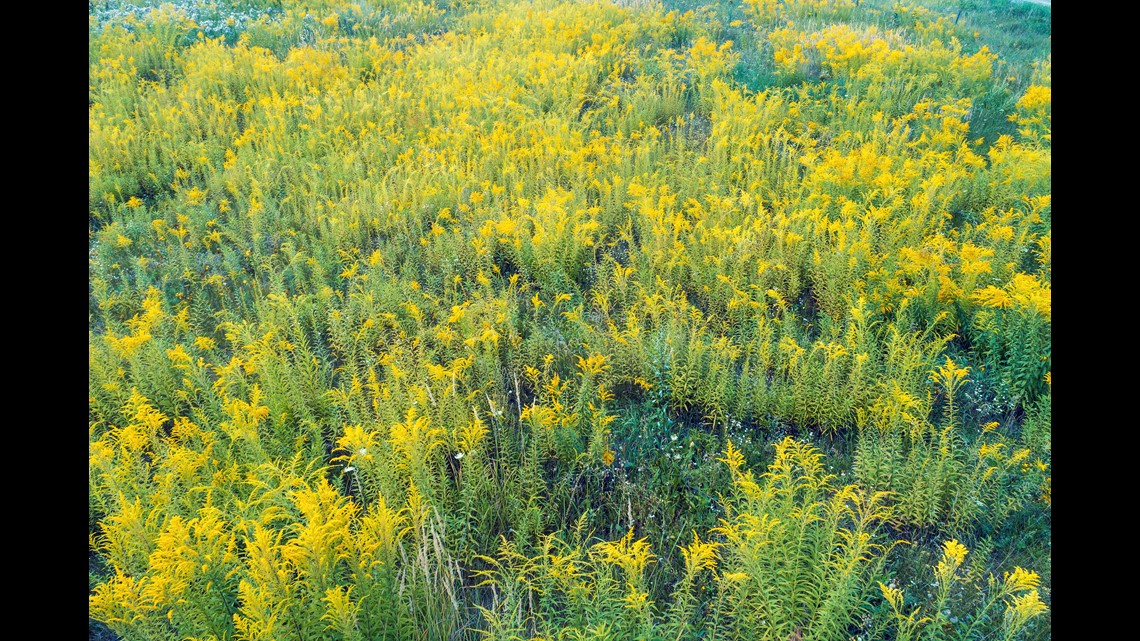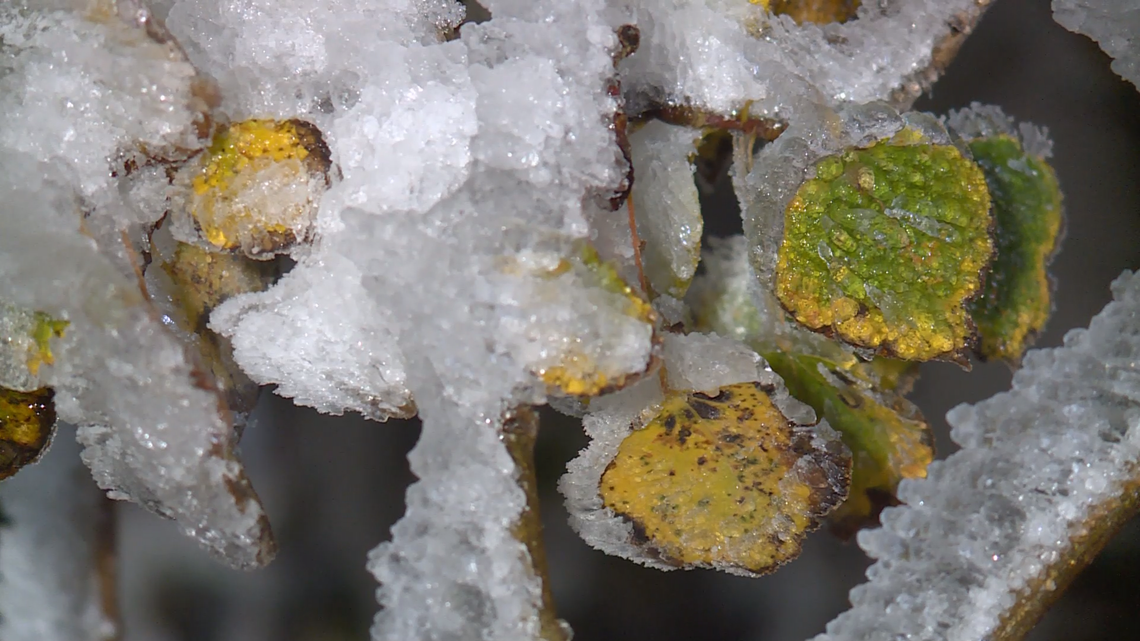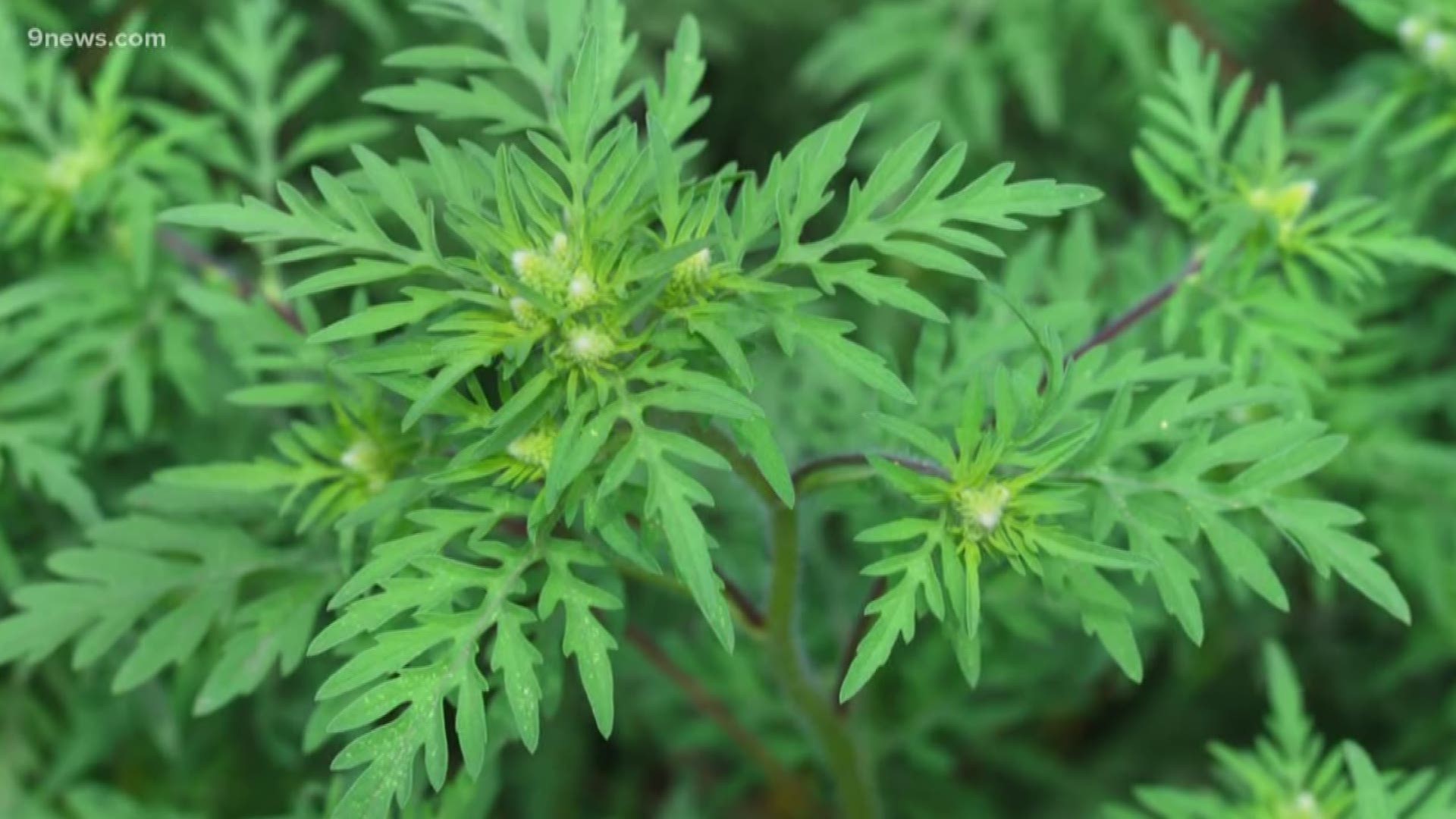Late summer pollen producers like ragweed, sage, goldenrod and rabbitbrush, continue to punish allergy sufferers well into the fall. Experts at National Jewish Health said it is not unusual for weed pollen in Colorado to linger into October, especially before the first freeze.


A Sept. 20 pollen count report from National Jewish Health showed that these weed pollens are still in the air around Denver, and a blustery weekend picked them up and spread them around.
National Jewish told 9NEWS that the weed pollen levels were much higher than usual for late September, especially the sage.
One report shows that the ragweed season has been extended by as much as 27 days as a result of global warming.


The growing season has been shifted all year: A cold and snowy spring slowed the birth of buds in Colorado; the final freeze in Denver didn’t happen until May 22; the latest freeze in 12 years.
Fruit blossoms were late to show, and some were damaged by the cold.
Winter wheat was late to come out of dormancy and not harvested until late July.
Home gardens were slow to bloom, and in many cases, are still producing.
Aspen leaves were slow to get started, leading to a slightly later color change.
RELATED: Fall Color questions answered
The summer heat has lingered longer with a near-record warm September.
The first dusting of snow on the mountain peaks was late, not occurring until Sept. 12.
Now the question is whether this shift will continue on into the winter weather season.


The average first freeze in the Denver metro area is Oct. 7. While temps are slowly dropping, there doesn’t appear to be a freeze coming in the next 10 days.
And the first measurable snow in Denver, which on average comes on Oct. 18. The trend is for overall warmer and drier conditions to continue to that point.
SUGGESTED VIDEOS | Science is cool

